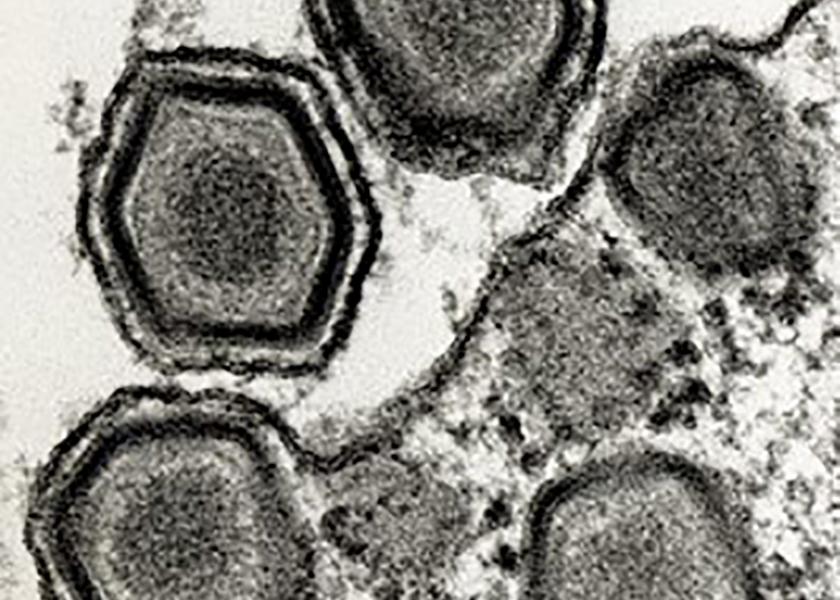Researchers Tackle Three Deadly Livestock Diseases

The Pirbright Institute is embarking on two new projects tackling three deadly livestock viruses: porcine reproductive and respiratory syndrome virus (PRRSV) and African swine fever virus (ASFV) in pigs and bovine respiratory syncytial virus (BRSV) in cattle.
“Control measures against ASFV are limited by our relatively poor understanding of how ASFV manipulates the host immune response,” said Pirbright researcher and project co-leader Chris Netherton in a release. “The ASFVint project will help fill this gap by bringing together expertise from a range of disciplines brought by partners drawn from across Europe. Together we hope to build a road map which help uncover novel ways to combat this fascinating but dangerous virus.”
ASFVInt will focus on identifying the roles of around half of the 150 to 170 genes contained in the ASFV genome. This deadly pig disease was estimated to have caused China $141 billion in direct economic losses in 2019.
Little is known about how ASFV genes contribute to infection and disease in pigs partially because of the size of its genome, which is around five times the size of the virus that is responsible for COVID-19.
“There are currently no vaccines or treatments available for ASF, so understanding which ASFV genes are important for replication and immune system interaction will help scientists to develop these vital disease control tools,” The Pirbright Institute said in a release.
Netherton and six partners will receive $1.68 million to investigate 80 ASFV genes and decipher what they each do during infection, the release said. They will also investigate if there are specific genes that are important for replication or that the virus uses to avoid the pig immune response. Researchers said this could provide new pathways for antivirals to target or additional genes that could be used in vaccine development.
The other project, NEOVACC, is coordinated by Pirbright professor Simon Graham and aims to develop vaccine strategies to improve protection of newborn animals against BRSV and PRRSV, the release said. BRSV causes major cattle respiratory disease outbreaks globally and PRRSV is considered one of the most economically important diseases affecting the global pig industry.
NEOVACC will receive $2.5 million to test vaccine strategies designed to enhance immune responses against these diseases in newborn animals.
“When animals are born, they are shielded from disease by antibodies that their mothers have passed on to them via their milk. However, these antibodies prevent vaccines from working effectively, meaning that when the mother’s antibodies fade from the newborn’s system, they are vulnerable to infection,” The Pirbright Institute said in a release.
Researchers will work together to improve protection by specifically targeting the vaccines to newborn immune systems, enhancing vaccine delivery and engineering drugs that boost newborn responses to vaccines, the release said.
The projects are funded through the International Coordination of Research on Infectious Animal Diseases (ICRAD) Transnational Collaborative Research Project.
Read More:







